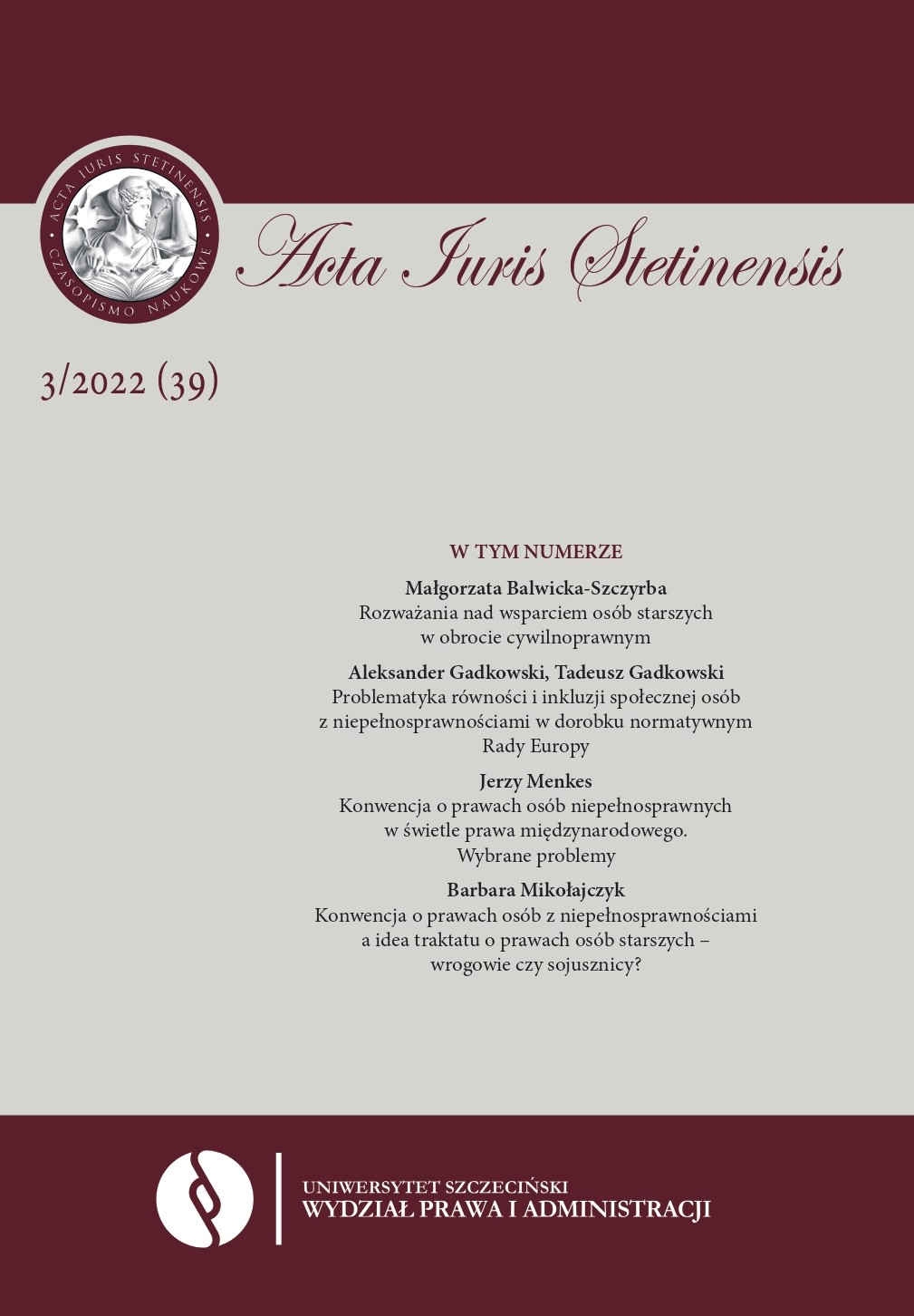Inkluzja społeczna kobiet i dzieci z niepełnosprawnościami a konflikt zbrojny
Social inclusion of women and children with disabilities vis-a-vis armed conflict
Author(s): Joanna Nowakowska-MałuseckaSubject(s): Social Sciences, Law, Constitution, Jurisprudence, Human Rights and Humanitarian Law, Sociology, Sociology of Law
Published by: Wydawnictwo Naukowe Uniwersytetu Szczecińskiego
Keywords: social inclusion; inclusive education; armed conflict; women and children with disabilities
Summary/Abstract: From the perspective of international law, the protection of vulnerable persons, women and children with disabilities, in situations of armed conflict is poorly regulated. Only some documents of international humanitarian law and international human rights law indicate the specific needs of women and children with disabilities in or in relation to armed conflict. The aim of this paper is to identify the problems of social inclusion of women and children with disabilities in the context of armed conflict and to point to the actions taken in this regard primarily by international organisations. The starting point is an indication of the concept of vulnerable groups/persons, followed by an analysis of legal norms and problems related to the effects of armed conflict on persons with disabilities, mainly women and children, and an overview of some inclusion activities. With the topic of the study formulated in this way, it is necessary to point to three to basic problems, both legal and practical: the situation of women and children with disabilities in armed conflict, physical and mental disabilities as a result not only of the course of the conflict, but also of the crimes committed against these persons, and disabilities as a result not only of the conflict itself, but also of the post-conflict situation. Next, it is necessary to look at some measures intended for the benefit of these groups, which aim, among other things, to foster social inclusion. It is pointed out that first and foremost it is important that authorities develop policies that address both disability and gender issues in practice. Support staff should also be aided in identifying skills and competences in working with women and children with disabilities. It is also necessary to carry out activities that strengthen peer relationships. In turn, setting targets for inclusion in existing programmes, including economic programmes, is expected to contribute to the removal of barriers and to further inclusion efforts. The implementation of any programmes is of course difficult during the armed conflict itself and afterwards faces both financial and organisational difficulties. Therefore, cooperation at the local and global level alike, between states and international organisations, is necessary.
Journal: Acta Iuris Stetinensis
- Issue Year: 2022
- Issue No: 39 (3)
- Page Range: 143-160
- Page Count: 18
- Language: Polish

